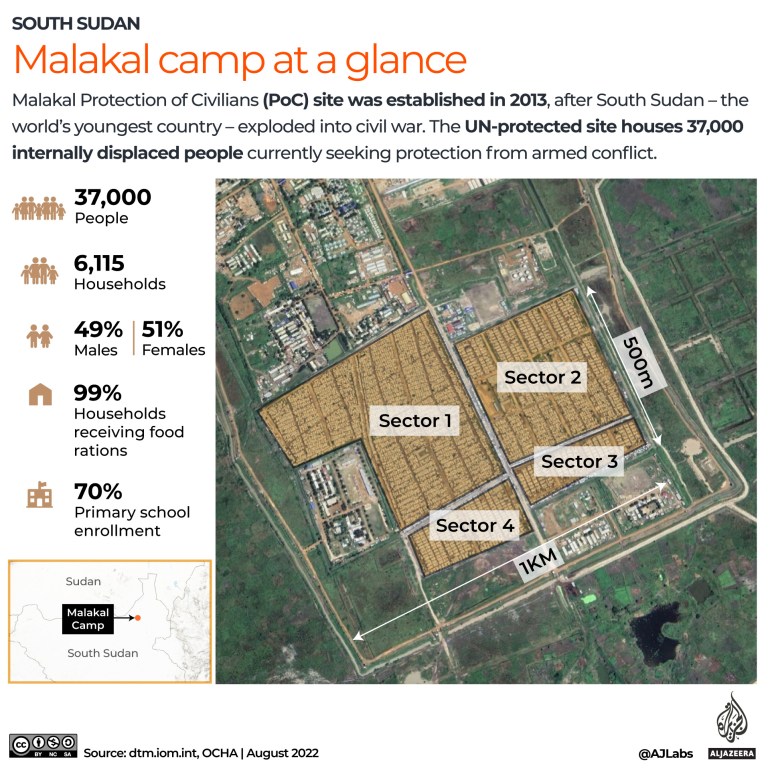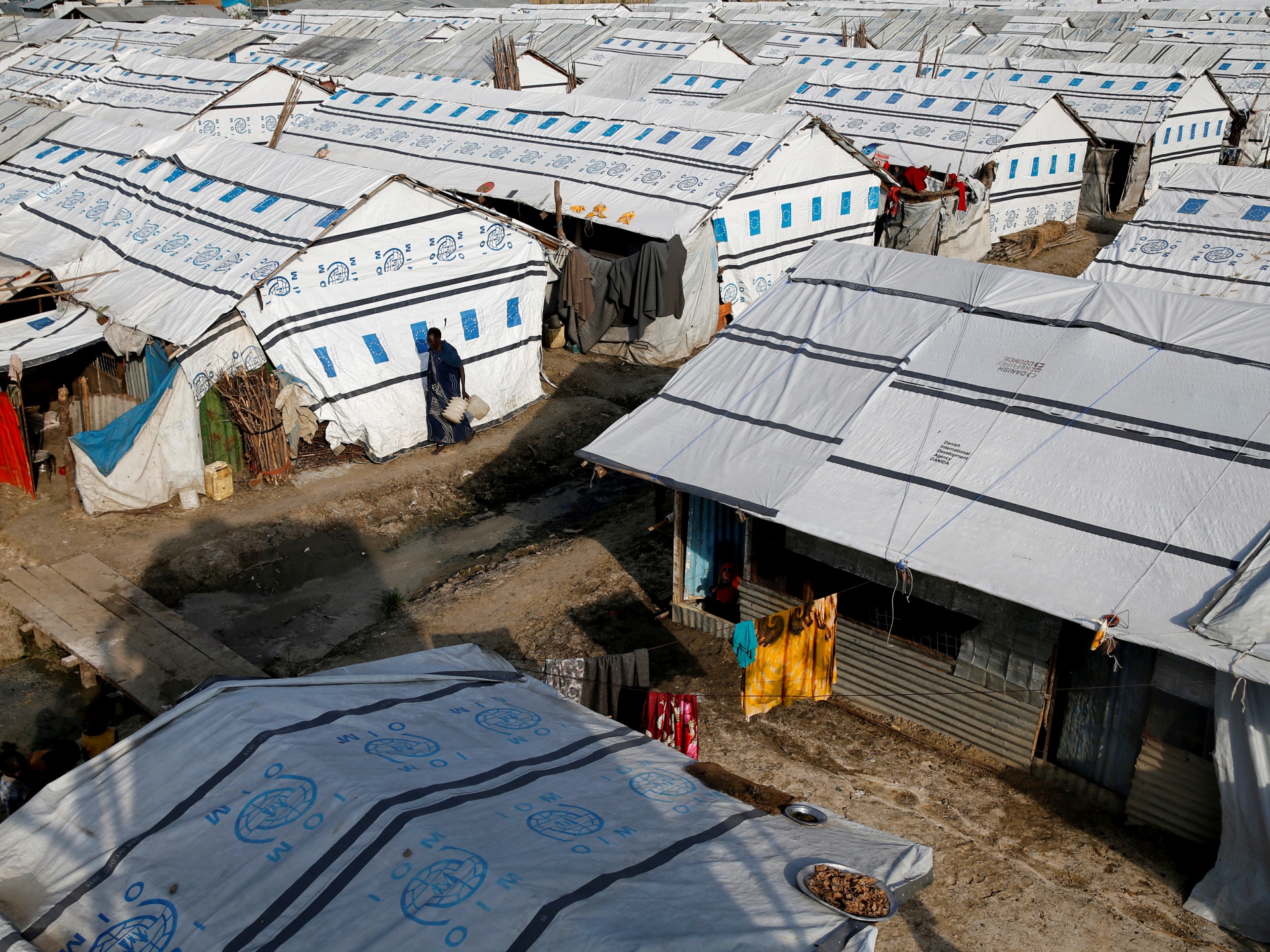Comments by Antonio Guterres come after an investigation by The New Humanitarian and Al Jazeera finds such cases have gone unchecked for years.
Antonio Guterres, the United Nations secretary-general, has requested an “urgent report” detailing the actions taken by UN staff to ensure accountability after an investigation by The New Humanitarian and Al Jazeera revealed that sexual abuse allegations against aid workers at a UN-run camp in South Sudan have largely gone unchecked over the years.
The Protection of Civilians (PoC) site in Malakal opened its doors in late 2013 to offer refuge to people fleeing South Sudan’s ruinous civil war. Accounts of sexual abuse committed by aid workers first emerged in 2015, but the scale of the problem has since grown despite a UN-led task force charged with tackling it, according to aid workers, camp residents and victims interviewed by The New Humanitarian and Al Jazeera. Reporters also analysed several UN and NGO documents.
“The Secretary-General is appalled by these allegations of sexual exploitation and abuse which causes irreparable harm to victims and their families,” Guterres’s spokesperson said in a statement to The New Humanitarian and Al Jazeera after the publication of the report on Thursday.
The statement added that the UN chief “has asked for an urgent report on the immediate actions being taken by the UN Country team to address sexual exploitation and abuse across our operations in South Sudan and ensure accountability”.
The revelations suggest a litany of systemic failures and missed opportunities by the aid sector and a deep betrayal for vulnerable women and girls at the camp, which now hosts some 37,000 people.
Aid workers with organisations such as the International Organization of Migration, Doctors Without Borders (Medecins Sans Frontieres, or MSF), the World Food Programme and World Vision were among the alleged perpetrators, with allegations including rape and sexual abuse of minors, as well as pressuring women and girls to have sex for gifts, and other examples of exploitation.
“The people sexually exploiting and abusing women in [protection sites] are the very people meant to serve and protect them; their entire lives depend on services from these same aid workers,” said Aluel Atem, a South Sudanese development economist and feminist activist who has written about gender-based violence in the country.

The allegations tally with those of other camp residents – testimonies that were detailed in a UN Population Fund report sent to humanitarian agencies on October 5, 2020, and shared with The New Humanitarian and Al Jazeera. In the report, residents said sexual exploitation was experienced “on a daily basis”, mostly perpetrated by humanitarian workers; UN and NGO workers were renting houses in the camp to have sex with women, and UN peacekeepers were paying bribes to gain access to women.
Sara Beysolow Nyanti, deputy head of South Sudan’s UN peacekeeping mission – in a March 2022 letter sent to aid organisations working in the camp – expressed “greatest alarm” at “increased incidents of sexual abuse and exploitation”.
“I request a review of your internal arrangements to further enhance sensitisation of aid personnel on these international commitments and raise awareness on PSEA (prevention of sexual exploitation and abuse), policies, standards, and code of conduct on PSEA,” she wrote in the letter, which was not made public before the investigation by The New Humanitarian and Al Jazeera.
Guterres’s statement said Nyanti, who assumed her position in January, has been “upfront in addressing these allegations and concerns since her appointment”.
